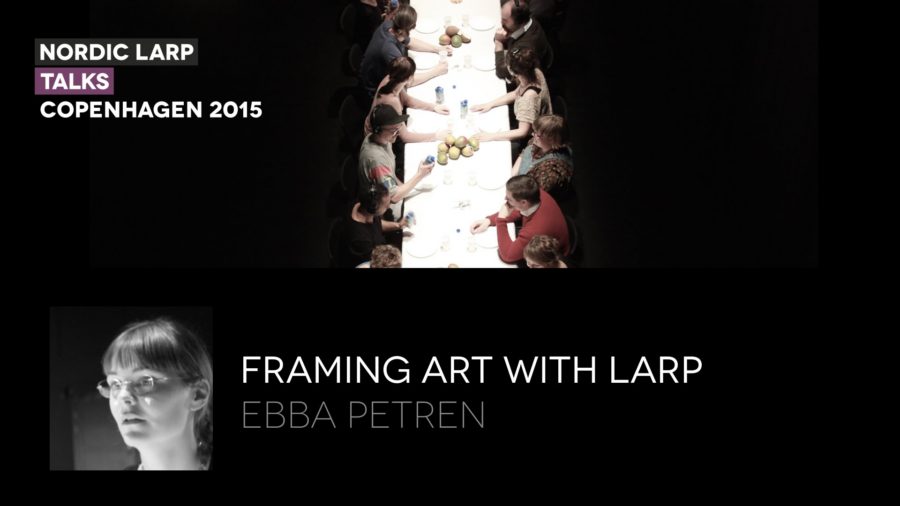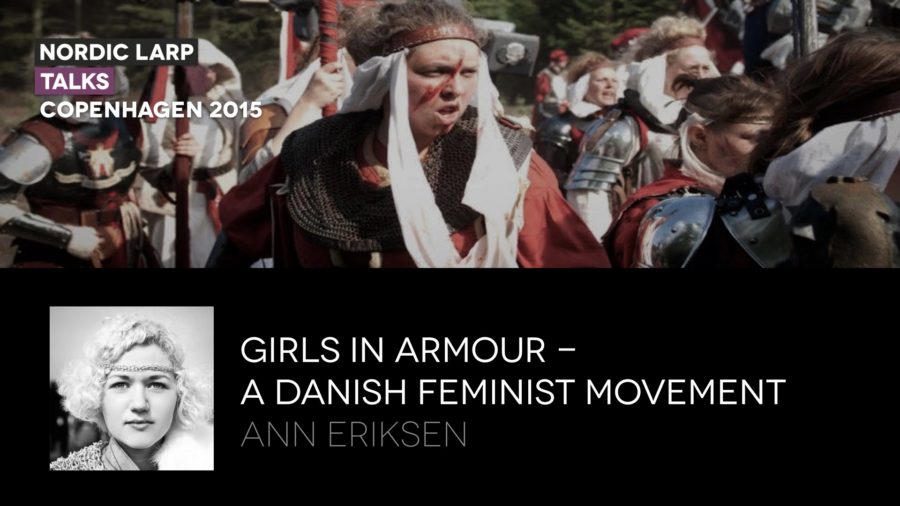I started out by wanting to get rid of what troubled me with larping. And I did that by creating something new. I not only ended up with this arts collective responsible for a series of performances, but I was also finding my gates to a whole new field of artistic research.
Archive
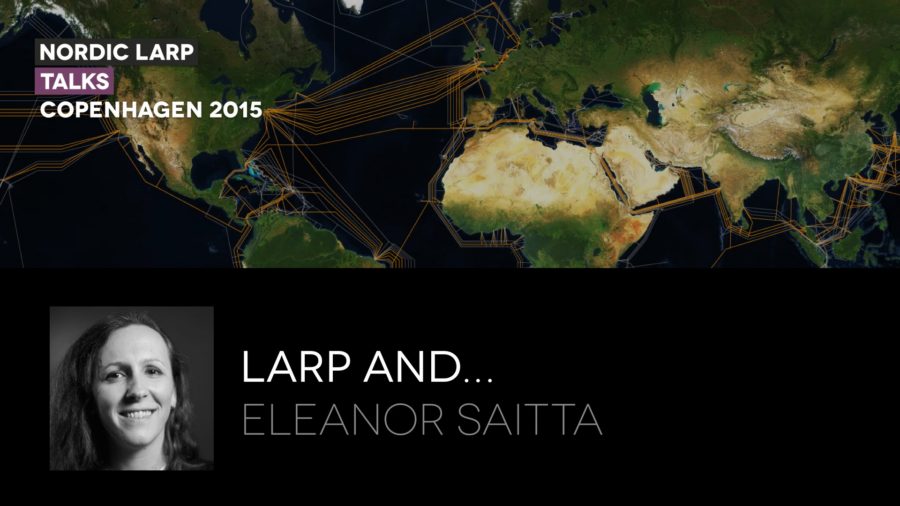
I’m going talk to you guys about larp and. Larp and a whole lot of other things. Because I think the most interesting things about larp are maybe not actually larp itself, but when larp meets a whole bunch of the rest of the world.
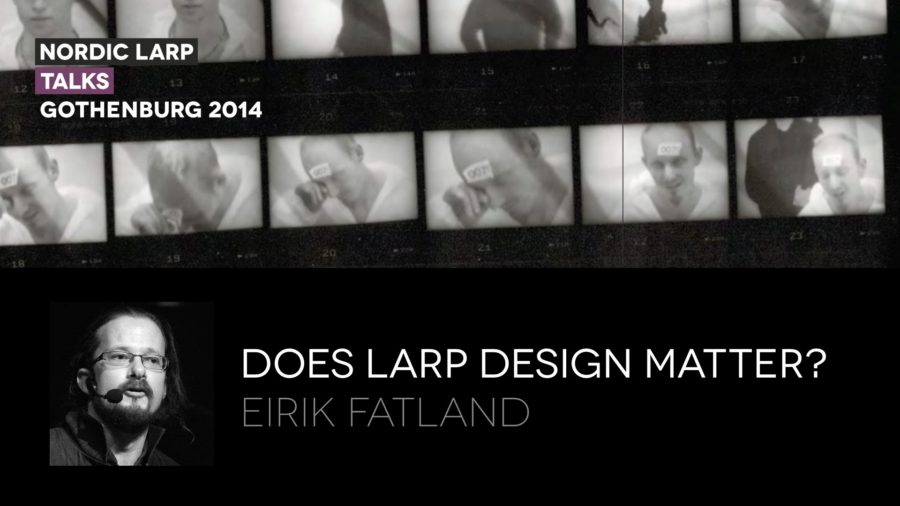
When we design larps, we’re playing basically with the building block of culture. Not just of fictional cultures, real culture as well. But asking people to act as if is not enough to make a larp. As larp writers, we need you to act as if, together.
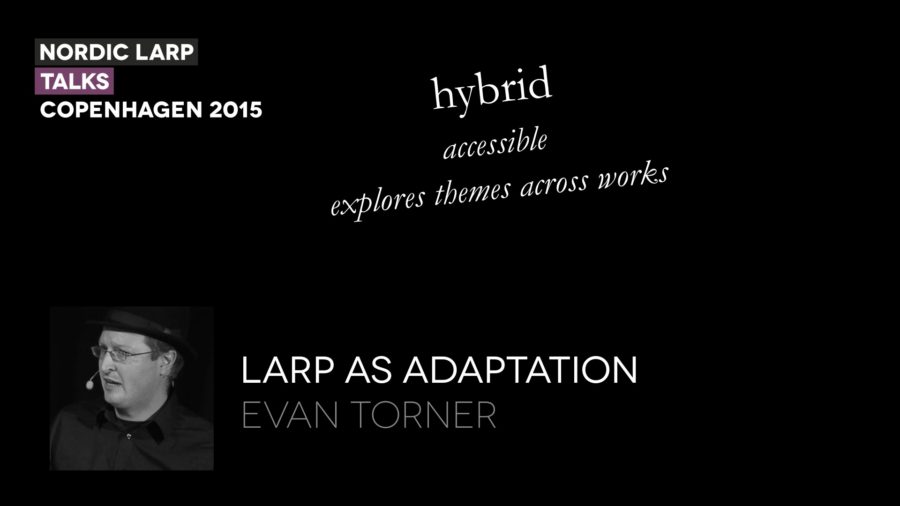
A larp takes a space and makes a place in which we create fiction with our bodies, and our voices. Although the larp medium certainly shares a lineage with the theater and the oral storytelling tradition, most of the fiction that we consume comes in other forms.
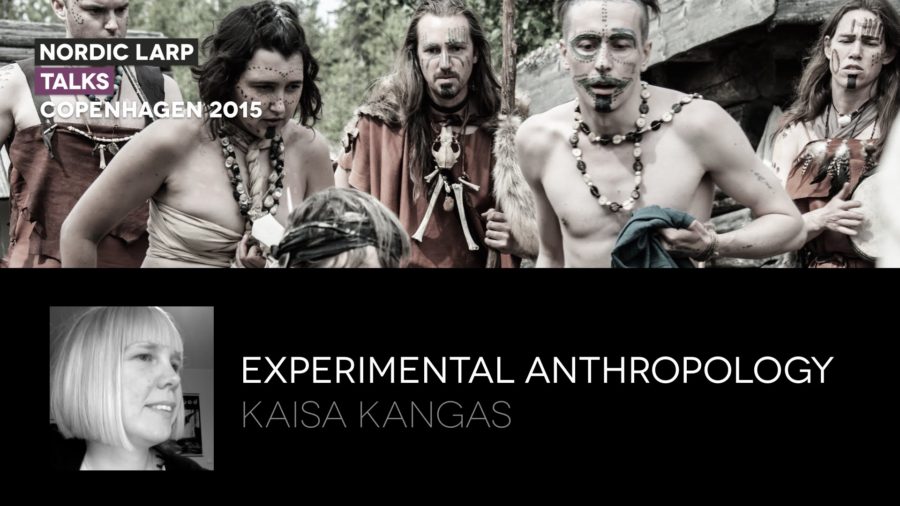
In experimental archaeology, we could for instance try to make the kind of shoes that our hunter-gatherer ancestors might have had, and test how long they last in use.
But what if we are interested in completely different kinds of questions. Like, did they have rules for whom you’re allowed to have sex with? How did they raise their kids? We could always look at existing hunter-gatherer cultures and guess that the culture might have been similar. But could we attempt to test our hypotheses, someway?

